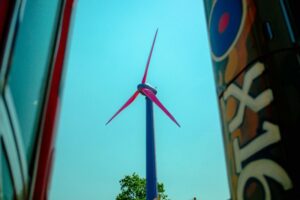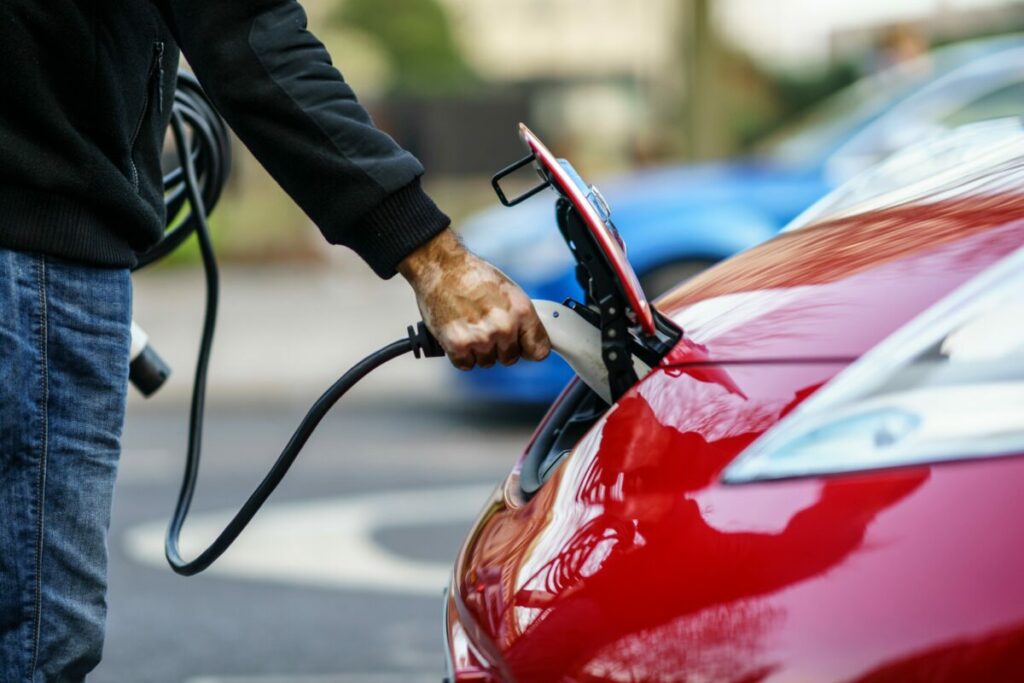Glastonbury, the UK’s biggest music festival, is currently underway. Attendees are expected to take wellies, raincoats, sun lotion and cider but have been advised to leave a few things out of their backpacks for green reasons, such as disposable vapes, make-up wipes and body glitter.
The festival organisers themselves have also made drastic changes at Worthy Farm to battle climate change such as installing a temporary wind turbine and organising a green shuttle service.
Glastonbury’s Green Fields area has been run on solar, wind and pedal power since 1984, setting a fossil-fuel free standard the festival is now working towards implementing across the rest of the site. In 2019, it banned the sale of single-use plastic drink bottles after mountains of rubbish were left once the festival had ended.
This year, Glastonbury has made even more green modifications across the site. Here’s a closer look at the initiatives the festival has announced over the past few weeks…
Subscribe to Sustainability Beat for free
Sign up here to get the latest sustainability news sent straight to your inbox each morning
A festival run on entirely renewable energy
Earlier this week, Glastonbury confirmed that this year’s festival will be run entirely on renewable energy.
In a tweet, the festival announced: “We’re very pleased to report that all of Glastonbury 2023’s power needs will be met by renewable energy and renewable fuels, eliminating the need to rely on fossil fuels for power across the Festival.”
“All generators across the Festival site are run on sustainable, renewable palm oil-free HVO fuel – made from waste cooking oil – helping reduce CO2e emissions.”
Glastonbury’s pink and purple wind turbine

A temporary wind turbine was installed at Worthy Farm by Octopus Energy last week, with solar panels also installed alongside the turbine. Together the renewable energy sources produce up to 300kWh of energy each day and will provide energy via a microgrid to provide green snacks and meals for the 200,000 festival-goers.
“We agreed the Glastonbury turbine only a few weeks ago,” said a spokesperson for Octopus Energy.
“It took just two weeks to build the parts and a single day to get the turbine up and spinning. That’s how fast green energy can get done when people work together.”
Sustainable festival shuttle services
National Express has partnered with electric vehicle (EV) fleet and battery storage specialist Zenobē to create the first sustainable shuttle bus service for Glastonbury attendees.
A pop-up charging station will mean the electric vehicles can be charged where needed rather than travelling to a central bus depot.
With huge numbers of people flocking to remote locations for just a few days, Zenobē co-founder and director Steven Meersman said the green shuttle service “marks an important step in the decarbonisation of the festivals and events industry”.
Glastonbury says no to disposable vapes
Earlier this month, Glastonbury organisers added disposable vapes to its official ‘do not bring’ list for festival attendees. It called for festival-goers to leave their disposable vapes at home as they “pollute the environment and can be hazardous at waste centres”.
The single-use electronic devices run on lithium batteries and are not rechargeable. Studies suggest that 1.3 million disposable e-cigarettes are thrown away each week in the UK, with many ending up on roadsides as litter or discarded in general waste, where they are destined for landfill.
No-go for disposable wipes and body glitter
Organisers also added non-biodegradable body glitter and disposable wipes to the official ‘do not bring’ list.
“Wipes – even biodegradable wipes, which quickly breakdown into micro-plastics – are problematic environmental pollutants,” it stated.
“Plant fibre-based biodegradable wipes release greenhouse gases when they decompose, so we would like people to really try to use alternatives. A washcloth and a bar of soap works wonders!”















